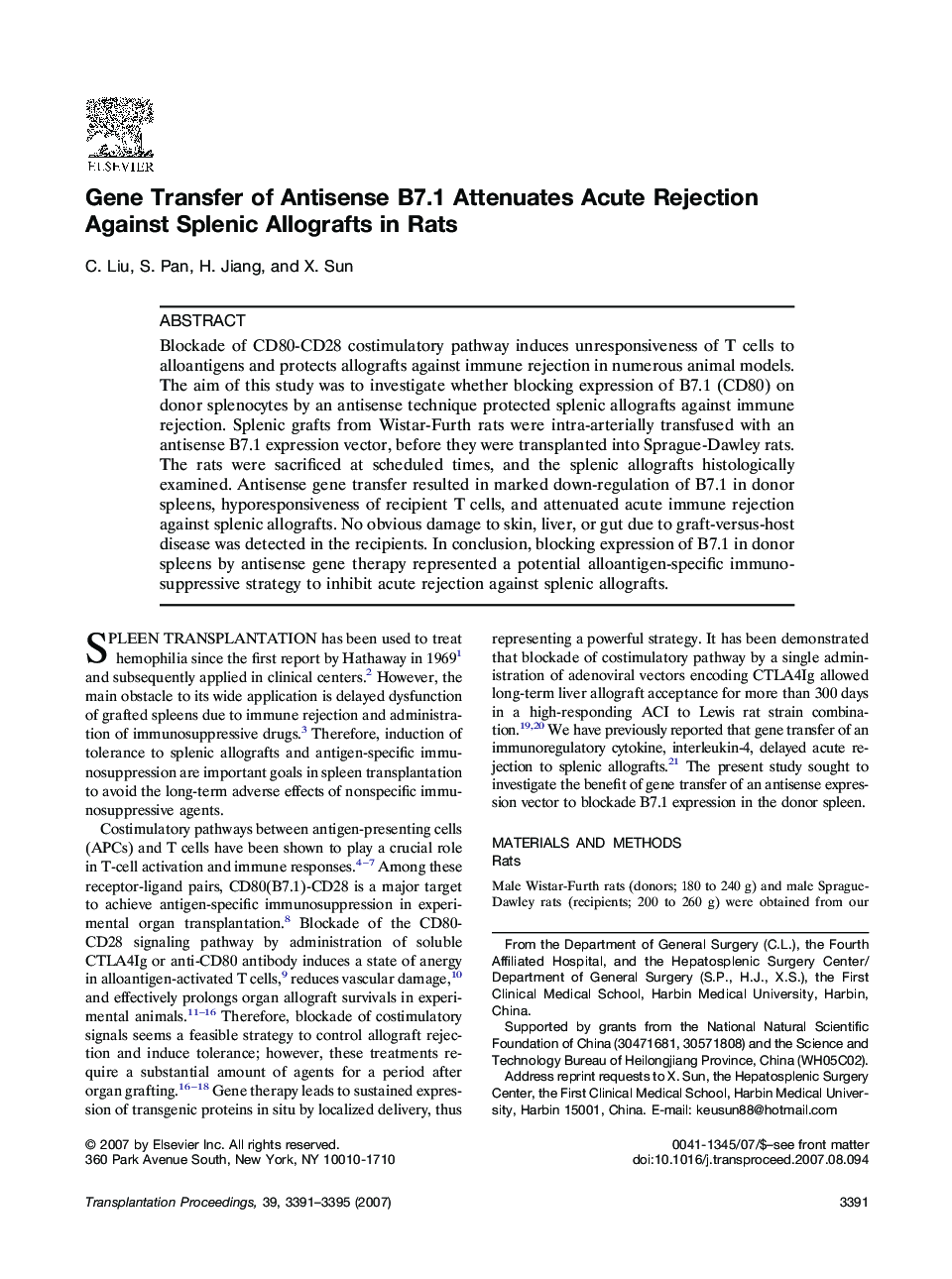| Article ID | Journal | Published Year | Pages | File Type |
|---|---|---|---|---|
| 4262793 | Transplantation Proceedings | 2007 | 5 Pages |
Blockade of CD80-CD28 costimulatory pathway induces unresponsiveness of T cells to alloantigens and protects allografts against immune rejection in numerous animal models. The aim of this study was to investigate whether blocking expression of B7.1 (CD80) on donor splenocytes by an antisense technique protected splenic allografts against immune rejection. Splenic grafts from Wistar-Furth rats were intra-arterially transfused with an antisense B7.1 expression vector, before they were transplanted into Sprague-Dawley rats. The rats were sacrificed at scheduled times, and the splenic allografts histologically examined. Antisense gene transfer resulted in marked down-regulation of B7.1 in donor spleens, hyporesponsiveness of recipient T cells, and attenuated acute immune rejection against splenic allografts. No obvious damage to skin, liver, or gut due to graft-versus-host disease was detected in the recipients. In conclusion, blocking expression of B7.1 in donor spleens by antisense gene therapy represented a potential alloantigen-specific immunosuppressive strategy to inhibit acute rejection against splenic allografts.
